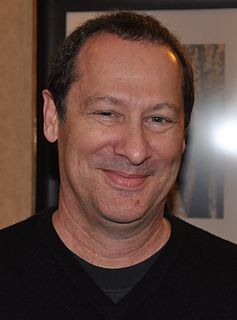A Quote by Charles Koch
The successful companies try to keep the new entrants down. Now that's great for a company like ours. We make more money that way because we have less competition and less innovation. But for the country as a whole, it's horrible.
Related Quotes
When you raise the budget, you make creative compromises. The higher the budget goes, the more cuts in your movie happen. When people talk about how movies are watered down, that's a direct reflection of money and budget. The less money you spend; the more risks you can take. That doesn't mean it will be successful, but at least you can try different stuff. The higher your budget is, the less you can do that.
The future will be less predictable, forecast rises will shrink, company lifetimes will shrink, new entrants will proliferate and it’s going to just get more unpredictable. If you thought financial crises came and went, just count on them – another economic collapse, it’s almost going to be like not news any more. But for startups this is great, because it’s a perpetual driver of disruption.
Abracadabra, thus we learn
The more you create, the less you earn.
The less you earn, the more you're given,
The less you lead, the more you're driven,
The more destroyed, the more they feed,
The more you pay, the more they need,
The more you earn, the less you keep,
And now I lay me down to sleep.
I pray the Lord my soul to take
If the tax-collector hasn't got it before I wake.
The way that I make films is that I sit down and I think, "How much money could I get with less consequences?" And that's how I start. I'd rather have less money and total autonomy than more money and start having to answer to things, because then I'm not being true and the money men are not being true.
I'm not necessarily less gratified by films where you're given less room to maneuve. Because I love a great script, and I love to respect it, and I love to try to give a director what he needs and wants, especially having directed now. [Laughs.] I'm much more open to try to give him what he wants and figure it out. I like working with directors I respect and admire, obviously. And everybody has their own way.
I have my own theory about why decline happens at companies like IBM or Microsoft. The company does a great job, innovates and becomes a monopoly or close to it in some field, and then the quality of the product becomes less important. The company starts valuing the great salesmen, because they’re the ones who can move the needle on revenues, not the product engineers and designers. So the salespeople end up running the company.
Tech companies like to set stretch goals, like we'll try to be the best company for women and minorities, and we have to ask, "What does that really mean?" By setting a goal like that, it makes all of us pay attention to that idea and try to innovate around it, to understand the underpinnings. One piece is being transparent, saying "Hey, we have an issue, we're open to innovation on it." It's important for innovation to prove that more diversity makes better products.
People are an asset, not a liability. The United States is the most immigrant-friendly nation in the world and the richest country in the world. This is not a coincidence. Those voices that would make us less immigrant-friendly would make us less successful, less prosperous and certainly less American.


































